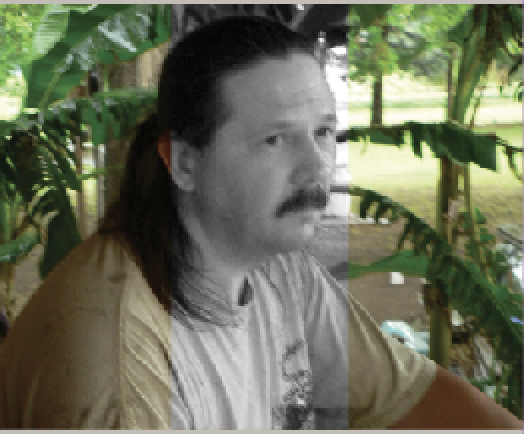My husband’s family bears a strong history of cancer. His father, brothers, aunts and uncles died of the disease. We carry cancer insurance as a result.
So cancer, I was prepared for. Not Alzheimer’s. Not when my husband was only 54 years old.
The signs became clearer just before Christmas 2013, when Jon lost a good job at Sedgwick County, where he’d worked 33 years. Jon blamed it on a new manager wanting to clean house, but it turned out he’d been written up several times for forgetting to do things that had once been second nature to him. Our son and I had noticed similar behavior over the previous year.
I could tell that it was difficult for him to fill out applications for a new job. He finally got a job in 2015 with a company that reset merchandise in Dillons supermarkets, but the company told him there was no more work available after three months. I suspect he had trouble following directions.
Jon continued to drive through 2016. But he clearly wasn’t processing situations around him. On a trip to Illuminations at Botanica that year, he turned left on a red light and didn’t react to a car stopping in front of him. I stopped letting him drive in Wichita, limiting him to short trips in Mulvane and Derby.
In December 2016, Jon’s driving difficulties finally convinced his primary care physician to give him a referral to a neurologist, something I’d been seeking for almost three years. Of course, the earliest possible appointment wasn’t until spring.
That appointment produced a positive diagnosis of Alzheimer’s. Jon was no longer allowed to drive, meaning I had to run all our errands and take him to and from his appointments. I went from working full-time to part-time at Lowe’s. In May 2017, a full neurological examination revealed that Jon’s dementia had affected his ability to see spatial relationships, making it hard to judge distances or even read instructions on a frozen food package.
For the past three years, I’ve been angry and frustrated. Angry at a disease that stole our plans for retirement, when we intended to visit Ireland and Switzerland. Frustrated that he won’t even try to figure things out from cleaning kitchen countertops to simple yard work.
The simplest instructions get scrambled in his brain, so I never know what he actually understands. He can’t navigate the buttons to use our stove’s oven and can only use the burners when I’m around since he’s forgotten to turn them off on several occasions. He’s stopped shaving, either because he can’t remember how to use a razor or can’t make sense of what he sees in the mirror.
I’ve lost track of the hours spent looking for things that he’s used and forgotten to put back in their place.
I’m not new to Alzheimer’s. My grandmother was diagnosed with it in 1986. My mother suffered dementia from brain atrophy. Working eight years as the corporate marketing director for Presbyterian Manors, I had a very personal interest in the Art is Ageless program, based on research indicating that creating art is one way to make the brain build new pathways that can help delay or prevent dementia. But Jon doesn’t have an interest in art or any hobbies beyond the improvements we’ve made to our property in the country through the years.
I dread making the long drive to visit to our son in Minnesota next year. The silence will be deafening. Right up until the end, my mom would talk, even if it was about events of long ago. Jon doesn’t talk. He sits silently and often doesn’t answer when asked a direct, seemingly simple question.
We’ve had a lot of income adjustments over the past decade. When Jon left the county job, he received KPERS, although it amounted to less than half of what he had been earning. Finally getting a diagnosis of Alzheimer’s allowed me to apply for disability benefits for him, which helped our financial situation. But we could have had him on it a year earlier had his doctor given us the referral when I asked the first time.
I can see a time when I won’t be able to work outside our home. I just don’t know when that time will be. Jon turned 59 in October. He’s at about stage three in the seven-stage Alzheimer’s progression right now. He says he understands that the to-do lists I leave for him are intended to keep him active, as blood flow to the brain is important, but tasks are undone when I get home.
Reading this, there may be those who think badly of me. But to deal with what goes on day-to-day – to watch the vibrant, strong, beautiful man I married turn into an old man who is frequently grumpy, often irritable, rarely speaks and has no concept of time – I have done what I often did when we were fostering dogs waiting for adoption: create a thin veil of separation.
I dearly love the man I married and have spent 36 years with. But I do not like the person that Alzheimer’s has created.
I know that our time together will be over sooner than we ever imagined. There are days I don’t want to go to work. Some days it’s because he seems more confused, but most days it’s because I know he’s one closer to being gone.









